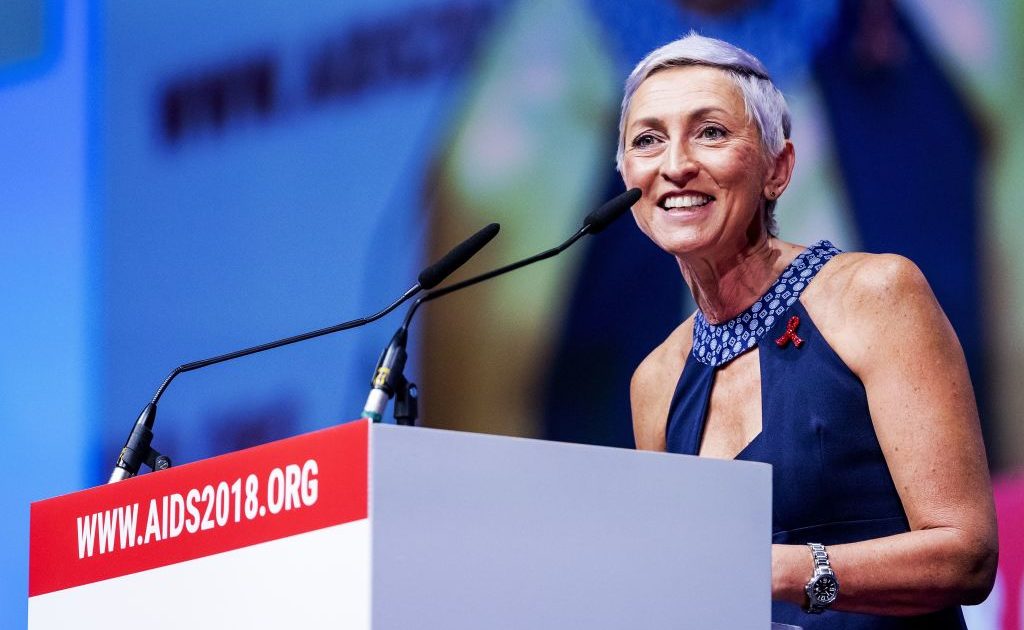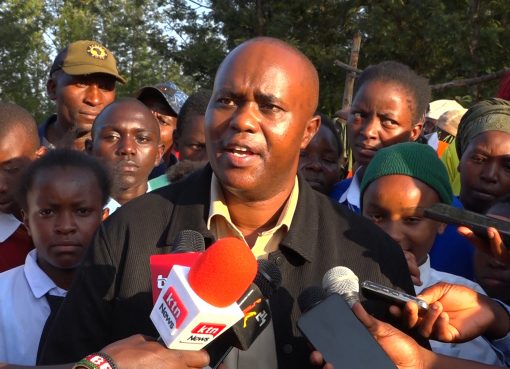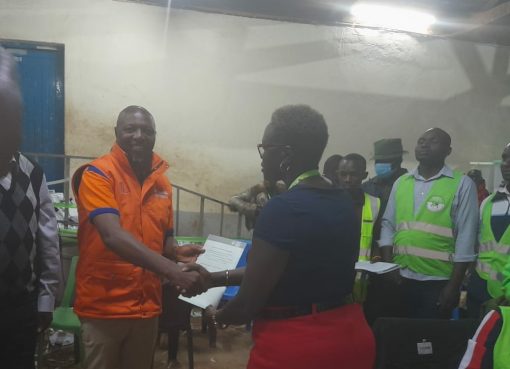The global drive to manufacture Human Immuno Deficiency Virus (HIV) vaccines in large quantities has gained momentum but challenges frustrating this important initiative still abound.
However, the zeal to use mRNA technology adopted by medical researchers to make HIV vaccines continues despite protracted challenges in the development process amidst warnings that this achievement could be more than five years away before realizing its full production in order to safeguard the vulnerable and weary HIV patients in society.
The UNAIDS 2021 report revealed that adults and children living with HIV/AIDS in Kenya stood at a 1.4million out of which women aged 15 and above were estimated to be 890,000 while men (15 and above) were 470, 000.
The HIV prevalence rate among adults (15-49) was 4 per cent, women (15-49) was 5.4 per cent, men in the same age bracket stood at 2.6 per cent while the number of young women catered for 2.1 per cent.
By 2020, the National AIDS and STIs Control Programme (NASCOP) revealed in a study spearheaded by JhPiego that Kisumu County had 4,661 new HIV infections with youths aged 15-24 accounting for most of the new cases.
Subsequently, the county initiated a number of public health interventions such as the use of condoms, and abstinence from sex while those found to have already been infected were put on antiretroviral therapy to facilitate the management of the disease.
Meanwhile, neighbouring counties like Kisii and Migori had earlier rolled out the Pre-Exposure Prophylaxis (PrEP) in collaboration with JhPiego through the Jilinde research programme in a bid to widen protection from HIV/AIDS.
It is in this light that Linda-Gail Bekker, the Executive Director of Desmond Tutu Health Foundation revelation on the application of mRNA technology aimed at accelerating HIV shot (vaccine) development termed the use of HIV Antiretroviral Lenacapavir as a potential game-changer.
Bekker said there were already five trials with HIV vaccines in the field that has adopted the mRNA platform but they were still in the earliest stage of human testing and would most likely take 3 – 4 years to get to the final stage of trials.
On the decades-long hunt for a shot to safeguard against HIV, Bekker opined that those late-stage trials in human subjects, if successful, were a precursor to a company applying for a license to sell the vaccines commercially.
She further explained that mRNA technology is also being used to make vaccines against the Covid-19 pandemic such as Moderna, Pfizer and BioNTech SE which temporarily turns cells into tiny vaccine-making factories.
However, she noted that previous generations of vaccines have primed the immune system with an inactivated or weakened version of a pathogen, or its piece.
“The great thing about mRNA platform is that you can tweak it quickly,” said Bekker, the former President of the International AIDS Society during an interview in Cape Town, South Africa recently.
Bekker observed that unlike HIV vaccines, the Covid-19 vaccines were produced within a year since huge funding from development partners and research expertise were dedicated towards the remarkable achievement.
She adds that private, public and academia all came together in the most extraordinary way as the Covid-19 scourge pummeled the entire globe. But what does this situation portend for Africa, and more specifically Kisumu-Kenya? One may be tempted to ask.
It is prudent to first of all state that the African continent has the world’s largest number of people infected with HIV, with about 13 per cent of 1 billion being virus carriers that cause AIDS, a disease that attacks the human immune system and can manifest itself after several years.
WHO medical experts explain that HIV targets cells in the immune system which are the body’s defence against illness and so weakens the body’s ability to fight against infections as well as some types of cancer. The virus destroys white blood cells in the immune system called CD4 cells which replicates itself inside these cells.
Subsequently, the virus destroys and impairs the function of immune cells and ultimately, the infected individuals gradually become immunodeficient. The body then becomes increasingly unable to fight infections and disease leaving the patient vulnerable to opportunistic infections and cancers. The immune function is typically measured by CD4 cell count.
In light of the foregoing, Bekker observed that the Health sector has never been able to get the same kind of industry excitement for HIV and Tuberculosis (TB) which are diseases that mainly affect the poor. It illustrates the need for Africa to secure access to the kind of technology needed to develop its own vaccines and treatments when asked to comment on the funding for the HIV pandemic.
In South Africa, the Desmond Tutu Foundation is currently engaged in a proactive attempt to find solutions by carrying out several vaccine trials. Dubbed “Sherpa trial”, which seeks to evaluate the extent to which healthcare workers who have already received two Johnson & Johnson Covid-19 vaccination could benefit from a Moderna shot.
Notably, the other one called the “Ubuntu trial” which stretches across several African nations was designed to determine the Moderna vaccine’s efficacy in people infected with HIV.
The foundation has also begun enrolling participants in a trial called “Lenacapavir”, an anti-retroviral that is used to prevent HIV infection and is administered via injection every six months. Lenacapavir development follows Cabotegravir, which is another preventative drug that is to be administered every two months.
“Cabotegravir resulted in an 88 per cent HIV-acquisition reduction in young women and girls in this part of the world,” Bekker revealed, adding “we have never seen results like that for a prevention study. Lenacapavir really builds on that. You would only have to come in twice a year to get your prevention on board, so that is why it’s a game changer”.
On the likely outcome of HIV vaccine progression stages, Bekker, one of the leading South African scientists aptly cautions “we need to understand that we are in for the long-haul and that HIV is not here today, or gone tomorrow. We are in our 40th year”.
The UNAIDS stated that US$ 21.4 billion (Sh2. 579 Trillion) was available for the AIDS response in low and middle-income countries of which around 60 per cent was from domestic sources.
However, the organization’s future projection estimates that US$ 29 billion (Sh3.495 Trillion) will be required to end AIDS as a global public health threat.
By Rolex Omondi and Joseph Ouma





